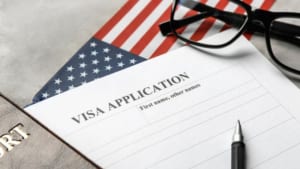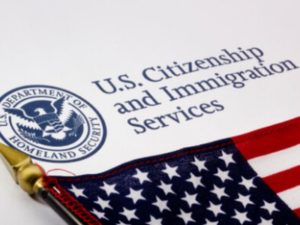The doctrine of consular nonreviewability refers to visa decisions decided by consular officers at U.S. Embassies and Consulates cannot be appealed to courts within the United States. The doctrine applies very broadly to decisions made by consular officers whether they apply to foreign nationals who have been refused an immigrant or nonimmigrant visa or by U.S. citizens or residents who receive a decision that adversely affects them. Consular nonreviewability however does not apply to decisions made by the United States Citizenship and Immigration Services.
While consular nonreviewability provides consular officers with a certain amount of legal protection in adjudicating visa applications once a decision has been made, the doctrine does not prevent an individual (person or corporation) from suing an Embassy or Consulate for an unreasonable delay or failure to make a decision. In the event an Embassy or Consulate has failed to reach a decision or has unreasonably delayed reaching a decision, a mandamus action against the Embassy or Consulate may be filed in a U.S. Court.
A mandamus action asks a court to order a government entity to complete a specific task that it is obligated to do under the law. Within U.S. immigration law, there are many tasks that an Embassy or Consulate is required to perform. When those tasks are not completed or they take an unreasonably long time to complete, a mandamus action may be filed to command the Embassy or Consulate to finish its job.
Once the Embassy or Consulate has reached a decision and issues a refusal on a nonimmigrant or immigrant visa application, a mandamus action would no longer be an appropriate action as a result of consular nonreviewability. However, other options may be available such as a reapplication or in the event of an immigrant visa application refusal where the petition is sent back to the United States Citizenship and Immigration Services, an opportunity to respond.
For more information of the doctrine of consular nonreviewability, contact us today at info@enterlinepartners.com and speak with a U.S. immigration attorney in Ho Chi Minh City, Manila and Taipei.
ENTERLINE & PARTNERS CONSULTING
Ho Chi Minh City, Vietnam Office
Suite 601, 6th Floor, Saigon Tower
29 Le Duan Street
Ben Nghe Ward, District 1
Ho Chi Minh City, Vietnam
Tel: +84 933 301 488
Email: info@enterlinepartners.com
Facebook: Enterline & Partners – Dịch vụ Thị thực và Định cư Hoa Kỳ
Website: http://enterlinepartners.com
Manila, Philippines Office
Tel: +632 5310 1491
Email: info@enterlinepartners.com
Facebook: Enterline and Partners Philippines
Website: https://enterlinepartners.com/language/en/welcome/
Copyright 2022. This article is for information purposes only and does not constitute legal advice. This article may be changed with or without notice. The opinions expressed in this article are those of Enterline and Partners only.




